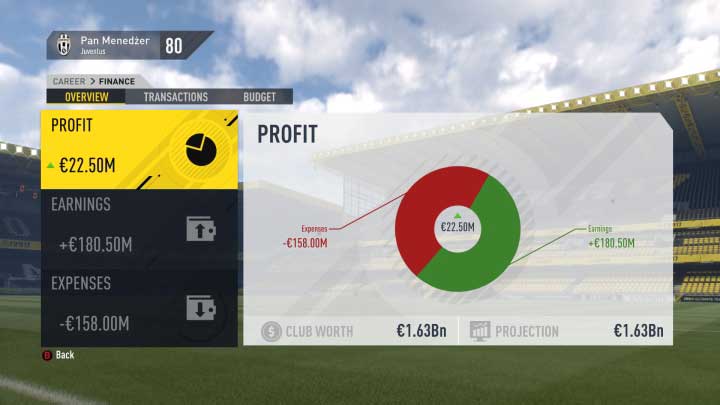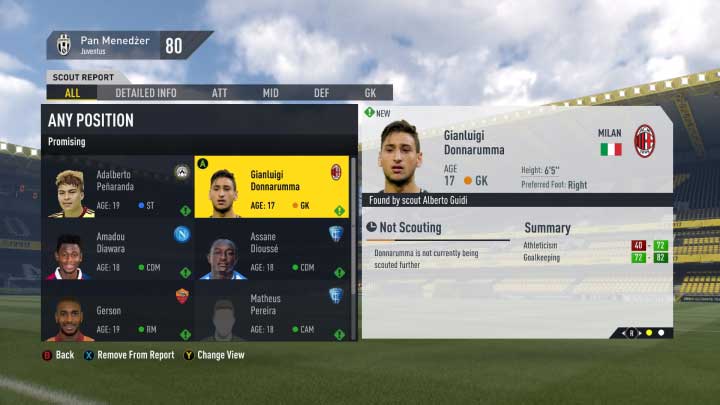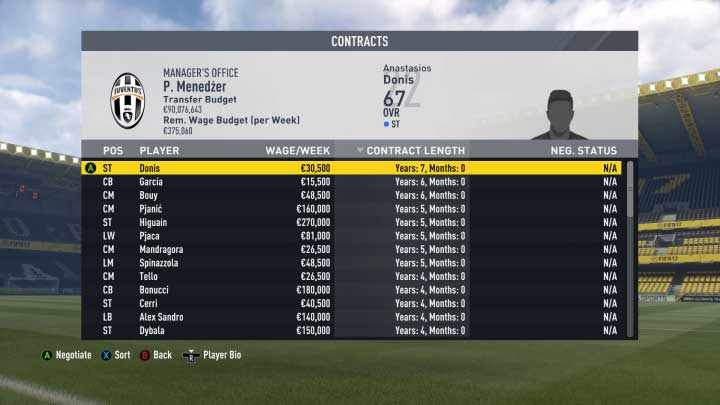FIFA 17: Transfers and Contracts

Buying Players

You should look to your scouts to buy a player. Give them some guidelines concerning what kind of player you're looking for. Search mainly for young players, who can be developed further. If you buy a good teenager, in two seasons he may become a world-class player. He won't cost you that much, and you may sell him when he has increased in value.
But if a good player has left the club, and you'll need someone that has a good level, buy an older and more developed player. You can buy two - one who is over 30 years old, and the second one who is under 20. The older player won't be so pricey as a result of his age, and he'll still keep his level. Until the moment he'll retire, the younger player will develop, and he'll become a player of the base eleven.
Selling Players
The price of the sold players is influenced by: overall grade, age, shape, and the length of the contract. Sometimes, you shouldn't sell older players, as you may not receive good money for them, and they can still play those two seasons up to their retirement, unless you pay a serious salary to that player. Then you should sell him at any price, and use that money to buy a youngling, who will ask for salary that is a few times less.
Sometimes you encounter players that in theory seem very good, young, talented, and developed, but their style of playing just doesn't fit yours. It is dependent on your style of play. If you want to sell such player, renew his contract, and only then place him on the transfer list. It will increase the amounts offered by other clubs. Remember that with every renewal, the amount paid increases, so you need to be certain of what you want to do.
Loaning Players
Some clubs offer the ability to loan a player. In that case, you don't pay anything to the club, and you can use the given player from a half up to two seasons. This is useful in situations where you are short of money. You should avoid loaning young players. Developing them won't bring you any benefits, only raising the value of the player.
Contracts

At first, contracting players seems to be a straightforward thing, as the player's demands are clearly written, but often they want to receive even more. At the beginning, always offer a contract with exactly the same data that is written as the player's expectations. His position may always be undetermined, and you can spare the bonus. If he declines, most of the time there is a reason in the mail, and typically you need to change the offered position in the team. Think about that for a moment, as if you give him a too low position, he won't be willing to sign the contract. However, if you offer him a bigger role in the team than he is accustomed too, he'll have low morale and will want to leave the party.
If the player says that he doesn't like the country, or he doesn't want to move, it means he wants a raise.
You are not permitted to copy any image, text or info from this page. This site is not associated with and/or endorsed by the developers and the publishers. All logos and images are copyrighted by their respective owners.
Copyright © 2000 - 2026 Webedia Polska SA for gamepressure.com, unofficial game guides, walkthroughs, secrets, game tips, maps & strategies for top games.
